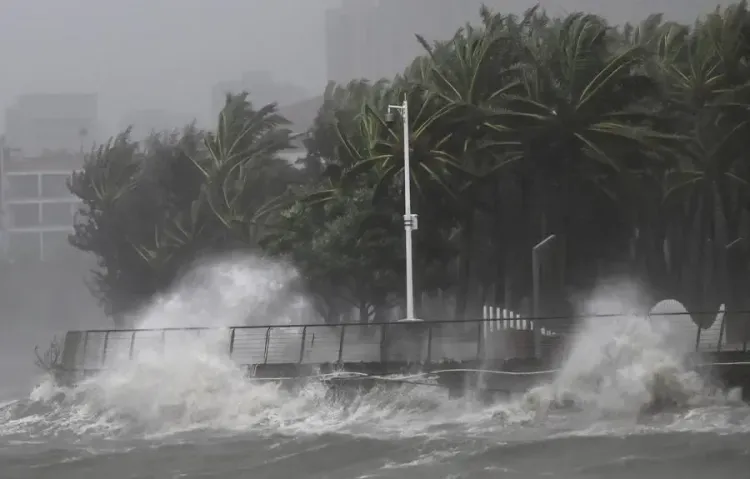Is a Cyclone Threatening Australia's Northern Territory?

Synopsis
Key Takeaways
- Tropical Cyclone Fina has intensified to a Category 2 storm.
- A cyclone warning is in effect for the Cobourg Peninsula.
- Residents should prepare for winds up to 155 km/h and heavy rainfall.
- Possible escalation to Category 3 is anticipated.
- Staying home may be the safest option during the storm.
Canberra, Nov 20 (NationPress) A cyclone warning has been issued for Australia's Northern Territory (NT) as Tropical Cyclone Fina has strengthened into a Category 2 storm and is expected to make landfall on either Friday or Saturday.
The Bureau of Meteorology (BoM) reported on Thursday morning that Tropical Cyclone Fina escalated to a Category 2 storm overnight, having initially been classified as a Category 1 on Wednesday.
As of 6:30 a.m. local time, the slow-moving cyclone was situated over the Arafura Sea, approximately 415 km northeast of Darwin, the NT capital. The storm is forecasted to shift southward, eventually heading southwest toward the coast later on Thursday.
The BoM has issued a cyclone warning for the Cobourg Peninsula, the northernmost point of the mainland NT, as well as for island communities off the northern coast of NT.
The region may face destructive wind gusts reaching up to 155 km/h starting Friday, along with heavy rainfall that could result in flash flooding, potentially impacting Darwin by Saturday.
It is anticipated that the cyclone may escalate to a Category 3 storm on Friday or Saturday as it approaches land.
The Northern Territory Emergency Services (NTES) has urged residents in the Cobourg Peninsula to begin preparations immediately, while those in Darwin and the Tiwi Islands should consider their response as the situation develops, according to a report by Xinhua.
During a press conference on Wednesday, NTES Chief Officer Wayne Snell stated there are currently no evacuation plans for island communities, emphasizing that staying home is the safest choice for most.
Notably, if the cyclone makes landfall, it will mark the earliest occurrence of a cyclone hitting the NT since 1970.









